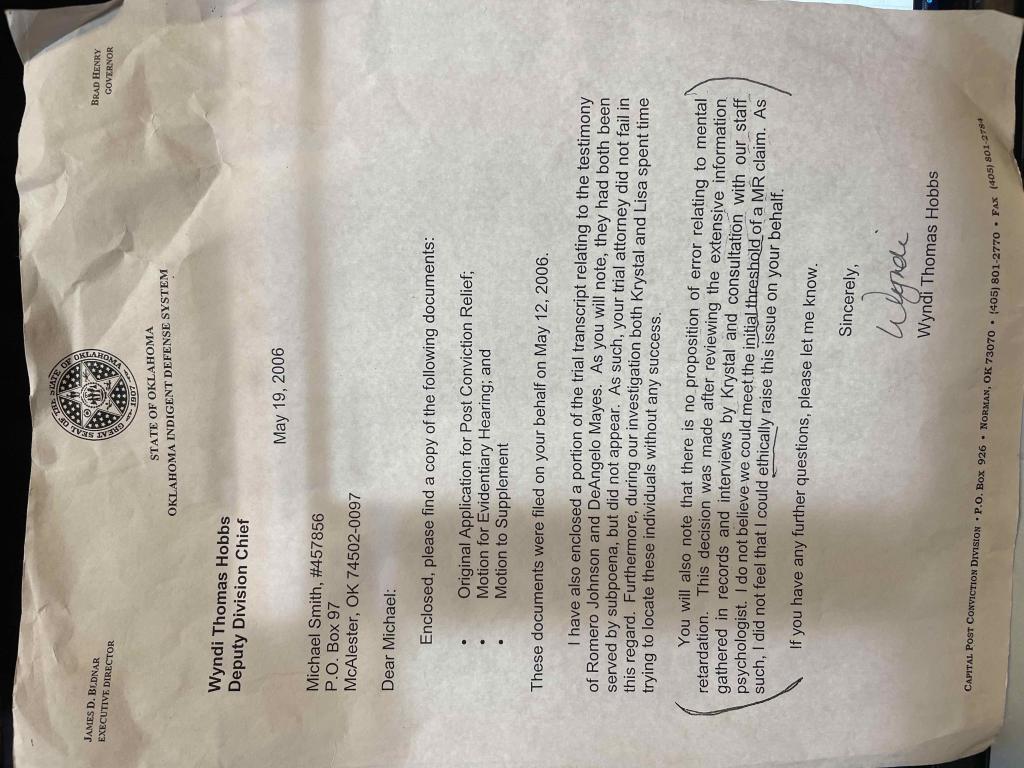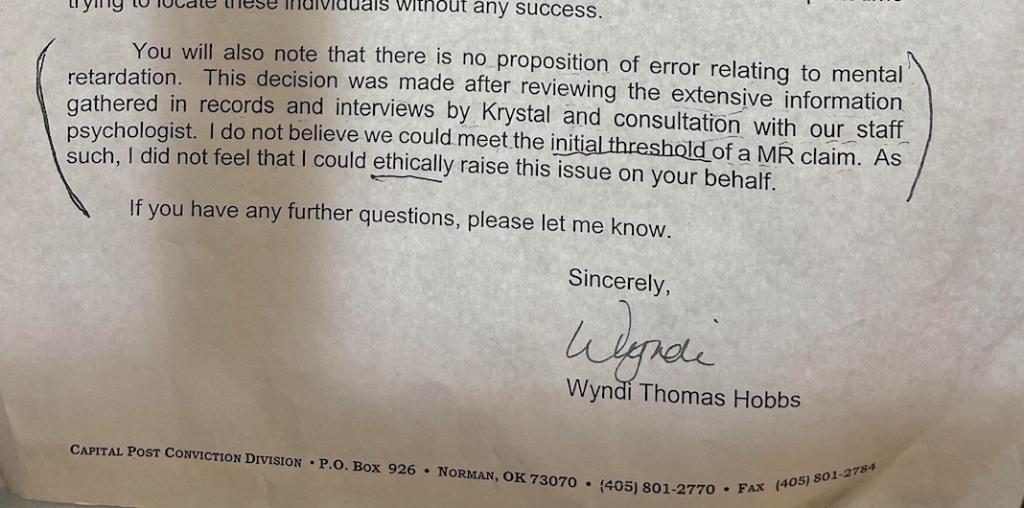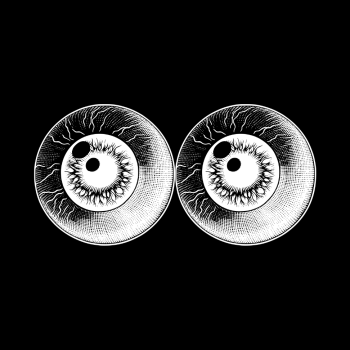
March 1, 2024
Injustice in Oklahoma: A Pending Execution & The Intellectual Disabilities of Michael Smith
On April 4, 2024, Michael Smith is scheduled to be executed. Over the past year and a half, I have had the pleasure to serve as Smith’s spiritual advisor. There are a variety of reasons and factors that contribute to my advocacy that his life be spared. The chief of which is that he has become someone I have come to love as a brother. Recognizing that such a human reason is not enough for most people, I next offer that Smith suffers from intellectual disabilities that make him ineligible for the death penalty. On June 20, 2002, the Supreme Court issued a landmark ruling ending the death penalty for individuals with intellectual disability. In Atkins v. Virginia, the Court held that it is a violation of the Eighth Amendment ban on cruel and unusual punishment to execute death row inmates with significant mental disabilities. Such diagnosis of Smith has nothing to do with my estimation (although I have experienced him as having significant delays), but rather numerous psychological evaluations that have yielded significantly low IQ scores. Darrin Pickens was actually taken off of death row in Oklahoma with the exact same scores. Smith’s case (and the comparison to Pickens) was even cited in the Death Penalty Review Commission’s bipartisan landmark report on Oklahoma’s use of the death penalty (147-148).
Under Oklahoma’s current statute, a capital defendant with multiple IQ scores—for example, 71 and 76— would appear to meet the threshold requirement of an IQ of 70 or below (considering the standard error of measurement). However, that same defendant would be barred from litigating the issue of intellectual disability because, under the statute, any score of 76 or higher prevents a finding of intellectual disability. And the standard error of measurement is not considered for a score of 76 or above. In fact, this scenario arose in the case of Michael Dewayne Smith. Smith’s case—considered by the OCCA after section 701.10b went into effect—involved IQ test scores of 71, 76, and 79. [Smith v. State, 245 P.3d 1233 (Okla. Crim. App. 2010)]
The OCCA, in rejecting Smith’s claim that his attorney was ineffective for failing to raise the issue of intellectual disability in post-conviction proceedings, stated: “It is clear then, that with two I.Q. scores of 76 and 79, Smith’s current claim fails under the express language of [section] 701.10b.” [Id. at 1237.]
Given Smith’s range of IQ scores, this definitive cutoff is arguably contrary to the U.S. Supreme Court’s subsequent opinion in Hall v. Florida, in which the Court expressed its “agree[ment] with the medical experts that when a defendant’s IQ test score falls within the test’s acknowledged and inherent margin of error, the defendant must be able to present additional evidence of intellectual disability, including testimony regarding adaptive deficits.” [See Hall, 134 S. Ct. at 2001].
Relatedly, the changes in Oklahoma’s procedure have resulted in similarly-situated defendants being treated differently under the law, depending on the time the case was considered. For example, Darrin Pickens, who had an IQ score of 79 (as well as scores of 70, 71, and 76), was granted Atkins relief by the OCCA in 2005. [Pickens v. State, 126 P.3d 612 (Okla. Crim. App. 2005)].
After section 701.10b went into effect in 2006, Michael Dewayne Smith—who had IQ scores almost identical to Pickens’—was denied relief, because some of his IQ scores were considered too high under the requirements of the new statute. [Id.]
The injustice of such a situation is beyond disturbing. What is even more disturbing is that Michael Smith pleaded with his lawyer (Wyndi Thomas Hobbs, who now appears to serve as the Deputy Division Chief – of the Capital Post-Conviction at the Oklahoma Indigent Defense System) to pursue an intellectual disability claim before the Oklahoma law raising the standard went into effect on July 1, 2006. The letter (see below) Hobbs sent to Smith on May 19, 2006 illustrates this very fact. Had Hobbs pursued such a claim, the Death Penalty Review Commission’s analysis indicates that Smith’s chances of success would have been high. But against Smith’s wishes, she did not.
The State of Oklahoma is preparing to execute Michael Smith…who not only has a significant intellectual disability claim…but is someone who has the exact same scores as Darrin Pickens (who got off of death row) and someone whose lawyer (Wyndi Thomas Hobbs) failed to file the proper claim on his behalf in time to pursue what could have been (according to the Death Penalty Review Commission) a successful claim of intellectual disability. Justice demands so much more than the treatment that Michael Smith has received. The State of Oklahoma is preparing to execute someone who (at a minimum) is ineligible to be executed.














